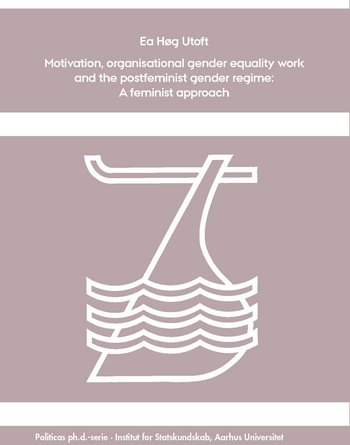Ea Høg Utoft
Motivation, organisational gender equality work and the postfeminist gender regime: A feminist approach

Denmark is a gender-equality spearhead nation. Or is it? The other Nordic countries generally outperform Denmark, which is consistently sliding in international rankings. As the political will to intervene has, for years, been limited, responsibility to act falls on individual workplaces. But how are organisations motivated to undertake gender-equality initiatives in a context which generally assumes that equality is already achieved? And which displays comparatively strong opposition to feminist politics and action? This dissertation investigates the motivation to engage in gender-equality work to see if we may understand it as something other than just personal; as collective, organisational or societal. It conceptualises motivation as pressures, incentives or contextual factors capable of generating organisational gender-equality actions independently of any one individual. An improved understanding of motivation may prove valuable by enabling advocates, policymakers and leaders to engage those motivations that hold the greatest promise to drive organisational equality efforts. Studying motivation as something more than individual means exploring it in context – a context which, in this dissertation, is construed as a ‘postfeminist gender regime’. ‘Postfeminism’ covers a set of prevalent gender‒feminism‒femininity discourses that are highly ambiguous because they are anchored in a simultaneous celebration and disavowal of feminism. Understanding the Danish context as a postfeminist gender regime makes evident how, despite significant progress, equality remains an unfinished project. Through its capacity to illuminate nuances and contradiction, postfeminism offers a lens, hitherto underutilised in the Danish setting, which may be key to progressing with respect to persistent and emergent gender inequalities.
![]() Ophavsretten tilhører Politica. Materialet må ikke bruges eller distribueres i kommercielt øjemed.
Ophavsretten tilhører Politica. Materialet må ikke bruges eller distribueres i kommercielt øjemed.